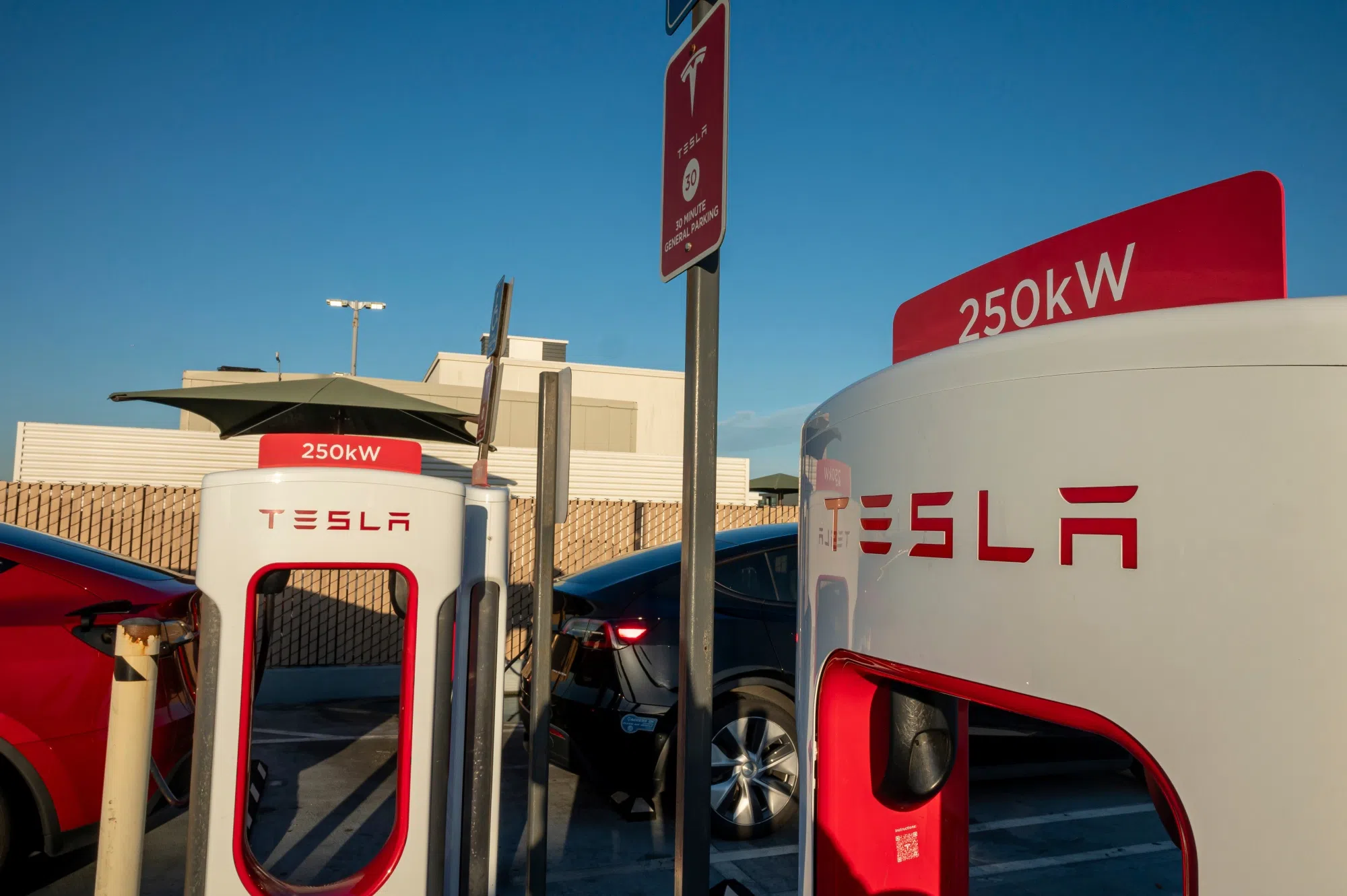BP keen to buy Tesla supercharging sites for US expansion
BP’S electric vehicle (EV) charging arm is eager to snap up Tesla supercharging sites across the US – along with the workers behind them – and has pledged US$1 billion to expand its network.
The company said it “is aggressively looking to acquire real estate to scale our network, which is a heightened focus following the recent Tesla announcement”. It plans to spend US$1 billion by 2030, half of it within the next two to three years to install over 3,000 charging points across the US. A key part of the strategy is building large-scale hubs with 12 or more chargers that it calls Gigahubs.
“If there are stranded real estate partners who are looking for someone to call, they should feel free to pick up the phone and call me or look me up on LinkedIn,” Sujay Sharma, chief executive officer of bp pulse Americas, said.
Elon Musk earlier this month fired most of Tesla’s Supercharger team with a plan to grow the EV charging network at a slower pace. This pullback threatens charging and EV adoption in North America, where 400,000 ultra-fast chargers are needed to serve 40 million EVs by 2030, according to BloombergNEF. Tesla currently accounts for 74 per cent of all the high-speed chargers in the region.
Tesla has been able to expand its charging network faster and at a lower cost per station than its rivals, according to estimates, and the system consistently gets the highest satisfaction ratings among EV drivers. That gives competitors a strong incentive to scoop up the roughly 500 people Tesla fired. “We are actively seeking good talent and real estate opportunities that allow us to help grow, despite whatever else is going on around us,” Sharma said.
The company last year signed a deal to procure about US$100 million of Tesla supercharger hardware, with the deployment expected to start later this year and early 2025, the CEO said.
GET BT IN YOUR INBOX DAILY
Start and end each day with the latest news stories and analyses delivered straight to your inbox.
Other companies, including EVgo, see Tesla’s slowdown as a positive development that will help increase their market share, according to chief executive officer Badar Khan.
This means “a fairly significant change in the competitive dynamic in the charging space”, that allows competitors such as EVgo to pick up “the slack” in growth left behind by Tesla, he said on the company’s earnings call on Tuesday (May 7). The firm also is eager to take on Tesla employees and is in talks with site hosts left in the lurch, he added. BLOOMBERG

